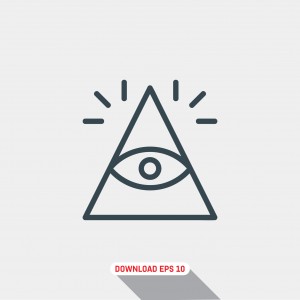In 2008, 342,000 people in the United States identified themselves as Wiccans. This number was up from 134,000 self-proclaimed Wiccans in 2001.
As of 2013, the number of Wiccans in the U.S. was less than 0.3 percent of the population. Even though this is relatively small, the Wicca beliefs have been growing gradually, and the followers are no longer keeping their activities secret.
This continuous growth is really impressive that any person would want to be curious about the spread.
First, Gerald Gardner started Wicca in the UK in the 1950s, and it later spread to the U.S. in the 1960s.
Why did this interesting pagan religion spread that first?
Stay around and let’s find out more.
1. The military sanctioned it
Wicca in the military is not yet widely publicized, but it’s something that is already a national issue.
Fort Hood military post in Killeen, Texas was the first base to allow the practice of the Wicca beliefs. As a result, more military posts, including Kadena Base in Okinawa, Fort Wainwright in Arkansas and Fort Pork in Louisiana followed suit.
This led to the formation of several Wicca groups, such as Open Circle in Fort Hood, which is sponsored by the Sacred Well Congregation of Texas. A retired major, David Oringderff, founded the Sacred Well after serving 22 years in the army.
The military is one of the essential components of the society. By allowing the Wicca followers to practice their rituals and beliefs in the military, this certainly normalized the religion.
2. Once upon a time, Wicca became divided
Two of the great names in the Wicca religion include Gerald Gardner and Alex Sanders.
Gerald is seen as the founding father of the religion and has published several books, including Witchcraft Today in 1954 to encourage and motivate the covens.
In the 1960s, Alex Sanders joined the scene by spreading alternative Wicca religion known as Alexandria Wicca in UK and Germany. Most of his claims happened to be untrue as he was just an attention-seeker.
The division happened when two Alex Sanders followers, Stewart and Janet Farrar, released secret Wiccan rituals.
However, Alex called for a truce in 1979, and the two groups continued working together.
3. Church and School of Wicca was the first organization
Gavin and Yvonne Frost founded the Church and School of Wicca in 1968, and it became the first federally recognized Wicca church in the U.S in 1972.
The church grew and developed more churches across the country. It became subject to federal investigations by the IRS and later proved that it was valid.
Its school offers programs such as sorcery, astral travel, psychic healing, and astrology.
4. Circle Sanctuary is U.S biggest organization
Reverent Helena Fox founded the Circle Sanctuary in 1974 and has served as the senior minister for more than 30 years.
The organization serves as a nature reserve and Pagan resource center. Helena has worked with colleges, universities, hospitals, correctional facilities, and the military to offer consultation on Wicca beliefs.
Circle Sanctuary now publishes two magazines: CIRCLE Magazine and the Circle Guide to Pagan Groups. It also sponsors events and festivals to spread the Wiccan beliefs.
5. Wicca is a way of life; Not just a religion
Wicca beliefs are embodied in nature and covens are usually taught to embrace nature as a source of peace and harmony.
Witches in the Wicca religion can come from different religious backgrounds and Wicca does not dictate their way of life.
The flexibility the religion offers has allowed people from different religions to join the group as a way to explore life or learn new beliefs.
This openness has attracted and bolstered membership.
6. Debunked Wicca beliefs
In the past, people used to believe that Wiccan witches performed dark rituals and crafts.
There have been several cases where the media described some murders as “Wiccan Ritual Killing.”
Wicca adherents have come out to object these claims and have stated that the religion does not support ritual murders. Some other myths that have been debunked include sex orgies, Satan worshipping, and evil spells.
Many people realize these myths are baseless and untrue, and this makes them even more curious to find out more about Wicca.
7. Introduction of Wicca schools
Several institutions offer courses focusing on Wicca beliefs, practices, and witchcraft. Some of these schools include:
- Church and School of Wicca
- WFT Academy of Pagan Studies
- Witch School in Chicago and Salem
- Cherry Hill Seminary
These schools offer convenient methods for new Wiccans to learn more about the religion. Ideally, they provide a platform for ordinary people to learn and embrace the Wiccan practices, such as sorcery and psychic.
For those who want to learn more, it’s advisable to attend coven programs provided by highly-skilled high priests.
Online courses are also available.
8. Wicca in Hollywood movies
The Practical Magic movie is a great one to watch as it demystifies the lives of witches. A case in point is where Gally and Gillian are drunk and dancing in the house, but people outside are taking it as a pagan ritual.
The Wicker Man, through Sergeant Howie, teaches that life can be easy if we learn and embrace other people’s beliefs. This is a must-watch.
Another great movie is The Last Keepers which provides a genuine and accurate representation of Wicca.
9. Wiccan celebrities
According to SheKnows, there are celebrity Wiccans that have been open about practicing Wicca beliefs. Though, this not covered a lot in the mainstream media.
However, fans have always been interested in knowing everything about their stars. This, of course, has led to speculations and rumors.
Some notable celebrity figures in Wicca include Fairuza Balk, Fiona Horne, Frank Lloyd Wright, Cybill Shepherd, Stevie Nicks, Tori Amos, Gabrielle, Anwar, Viggo Mortensen, and Sully Erna.
10. Wiccan events, groups, and festivals
Today, many Wiccan groups participate in events and festivals to share their beliefs and embrace their lifestyle.
Witchvox is a popular site that provides listings for Pagan events, workshops, and circles. It lists activities for adults, military, and teens.
Another great source for events and workshops is Wichology, a portal started by Dr. Leo Ruickbie to share the history of Wicca and witchcraft.
The events usually welcome people from different religious groups to join them.
There are also varied groups on MeetUp.
Now you know
These are some of the factors that have shaped the spread and adoption Wicca beliefs.
As more people continue to learn and embrace the religion, the number of adherents is going to grow steadily. At some point, Wicca was recognized as the fastest growing religion in the United States.
So, if you have a Wiccan group in your area, you can stop by to engage them and learn a thing or two.
Learning helps, right?


Speak Your Mind